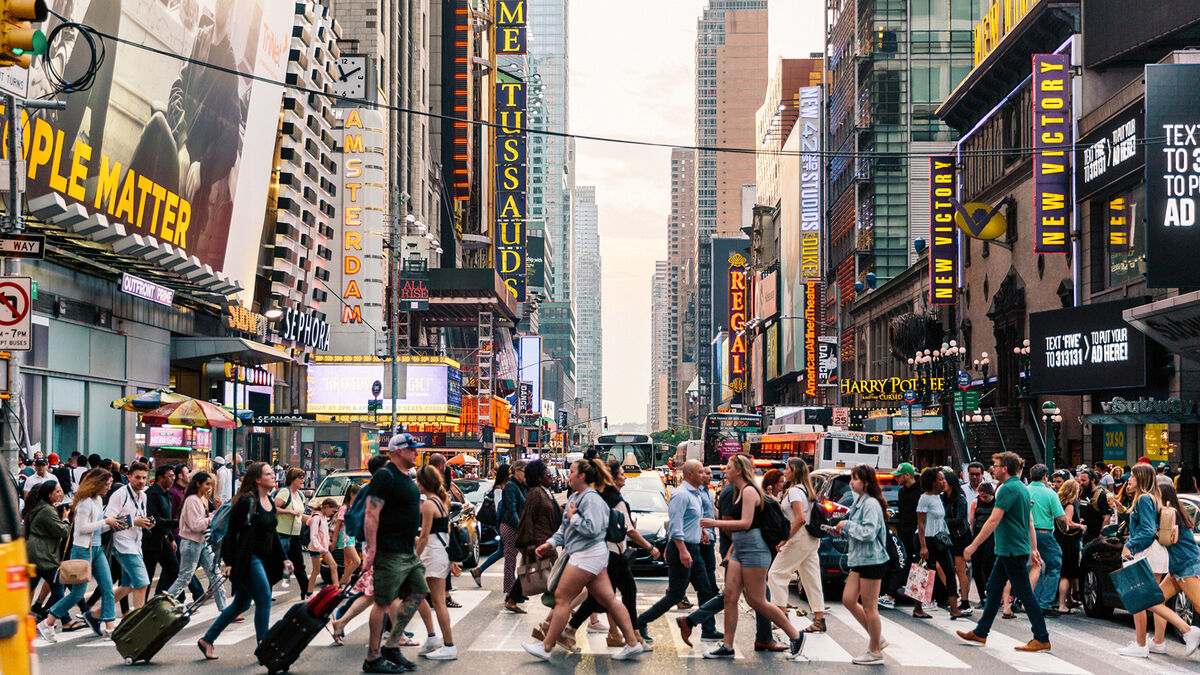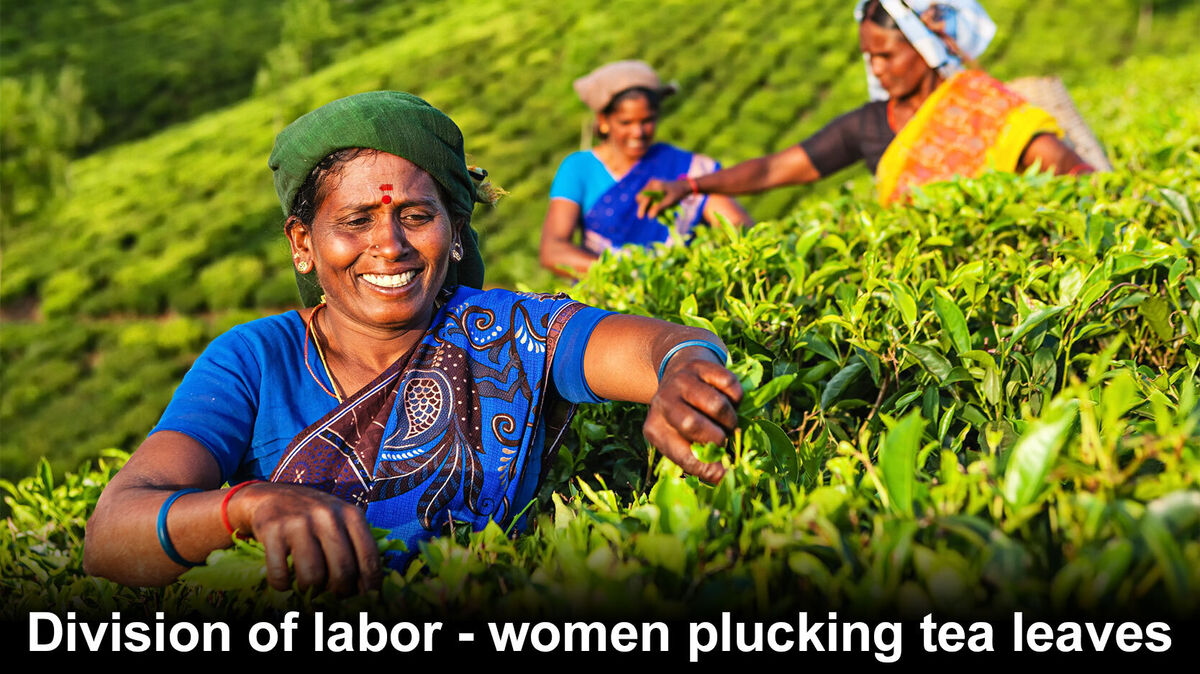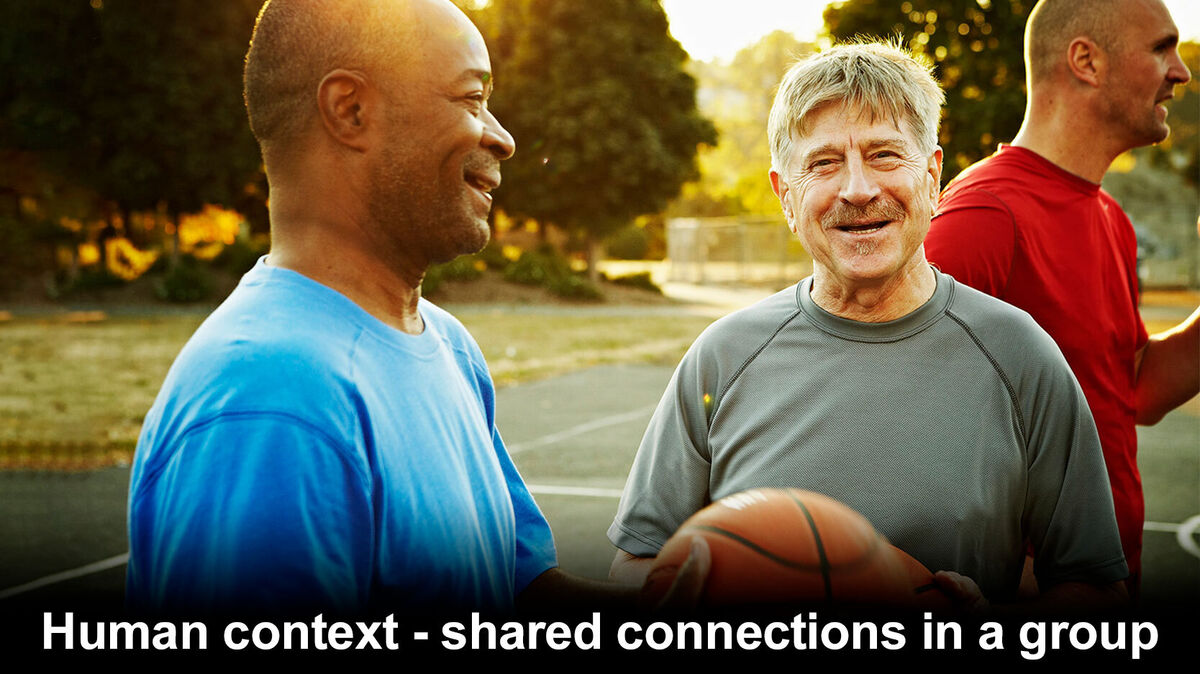
What is society? The answer is complicated — and it depends on what view of sociology you’re using. Keep reading to learn key terms and concepts for both macrosociology (the study of society at the largest level) and microsociology (the study of society at the smallest level).
Macrosociology Terms and Concepts
The macrosociology perspective reveals important structures and patterns in society as a whole. It includes paradigms, or theoretical frameworks, such as structural functionalism and conflict theory. Some key terms from the study of macrosociology include:
- agrarian society - society that raises crops and livestock
- collectives - groups of people that make up a society
- collective behavior - spontaneous behavior shared by a large group of people that do not reflect social norms and structure (e.g., riots, mass hysteria, trends)
- community - group of people that follows a larger social structure
- Comparative and Historical Sociology (CHS) - sociological research approach that involves studying current and historical patterns of behavior, as well as transformative breaks in societal behavior
- conflict theory - Marx’s theory that society exists due to the eternal struggle of those who have resources and those who need resources
- class conflict - struggle between societal classes (including socioeconomic classes) that engage in conflict theory
- division of labor - the separation of work into several different parts or roles, which are dispersed throughout a society

- economic system - management of a society’s goods and services through a social institution; examples include capitalism and socialism
- ethnicity - cohesive community with a shared language, religion, race, culture, customs, and place of origin
- forms of authority - Max Weber’s classification of the three types of authority (charismatic, traditional, legal-rational) that manage different societies
- gender - society’s classification of certain behaviors that correspond to traditional masculinity or femininity
- gender-conflict theory - the application of conflict theory to societal gender roles; describes the societal subjugation of women as the result of the struggle for dominance by men
- idealist strategy (or idealism) - perspective that human ideas shape society as a whole
- materialist strategy - sociological perspective that humans are primarily motivated by material goods and living conditions
- populations - collection of humans that share one or more attributes, typically geographic location
- power structures - organization of power that dictates behavior and norms within a society, such as a government or corporation
- rationalization - Max Weber’s concept that modern society will exchange emotional traditions and moral values for rational qualities, such as workplace efficiency and increased productivity
- race-conflict theory - a focus on the perpetual conflict and inequality between racial and ethnic groups based on Marx’s conflict theory
- religion - social institution made up of a population with shared beliefs that reinforce social values through ritual
- social class - division of a population into classes based on various social and economic factors
- social dysfunction - disruptions of typical social life and expectations; remedying social dysfunction can reinforce social norms in a positive way
- social functions - Bronislaw Malinowski’s and Robert K. Merton’s theory that social systems have two functions; manifest functions are deliberate and planned, while latent functions are unplanned and incidental
- social institutions - building blocks of social structure that set and regulate social behavior; the main social institutions are family, government, education, religion, and economy
- social patterns - repeated behaviors among members of the same society across time
- social structure - arrangement of institutions that define a society; social structures are often met with social change
- social systems - relationship networks of individuals in a society
- social trends - short-lived behavior shared by a larger society
- structural functionalism (or functionalism) - theory that society moves as a large, interconnected machine, and that as long as the society is functioning, everyone benefits (conversely, if part of society is dysfunctional, the rest of society cannot function correctly)
- systemic discrimination - condition in which societal discrimination (e.g., racism, sexism, homophobia) permeates a society’s social structure, making social behaviors inherently discriminatory
Microsociology Terms and Concepts
Microsociologists argue that society is made up of small, interpersonal interactions. They study social behavior in small groups and how one’s individual status affects their life. Here are some key terms and concepts from microsociology:
- anomie - lack of societal values shared by the rest of one’s society (from Émile Durkheim’s strain theory)
- ascribed status - one’s societal status at birth; an unearned social status
- attachment - one’s ties to their social groups (e.g., family, friends, community)
- commodity - something that can be bought and sold
- dramaturgical analysis - the process of analyzing people’s day-to-day interactions as if they were actors on the stage (from Erving Goffman’s concept of dramaturgy)
- empathy - the ability to understand and help others, which leads to positive social interactions
- ethnography - studying a specific group of people by becoming immersed in their culture and observing how they live
- ethnomethodology - the study of how people negotiate and make sense of their daily lives
- gender roles - behavioral norms expected of each gender held by a community or group
- human context - the connections that form a group of people rather than a collection of individuals (e.g., genetics in a family, shared interests between friends)

- microculture - culture shared by a small group of people
- microlevel phenomena - events that occur on a microsociological scale
- social action theory - Max Weber’s theory of how human behavior has either a basic action or advanced social action that impacts their community
- social agency - an individual’s ability to operate under free will and make their own choices; social agency is often limited by larger structures and norms
- social behavior - common, accepted behavior of individuals in a community that serves as functional communication
- social interactions - positive or negative exchanges between individuals that reinforce the rules and systems of a larger society
- social roles - one’s place in a society, which includes that role’s behavioral expectations, privileges, duties, and rights
- social status - one’s position in a group or community, which can be higher or lower than others’ status
- socioeconomic status - the combination of wealth, education, occupation, and living conditions that defines a person’s or group’s standing in society
- symbolic interactionism - sociological paradigm that dictates how members of a society interact with each other, specifically with mutually agreed-upon gestures and symbols (e.g., stopping at a stop sign, waving hello, smiling)
- verstehen - understanding of human behavior on an emotional level
Macro-Micro Theory
Many sociology scholars argue that the microsociological level informs the macrosociological level. For this reason, the macro-micro theory contends that nearly every sociological paradigm works in either perspective. It eliminates the distinction between macrosociology and microsociology, claiming that the individual and the whole are forever linked.
How Society Works
Studying society on paper only goes so far. Eventually, you need to apply these theories to real human life and interaction. If you’d like to learn more about sociology in our daily lives, check out an article that discusses examples of social conflict theory in everyday life. If you'd like to learn more about a specific topic, explore sociology research topics.